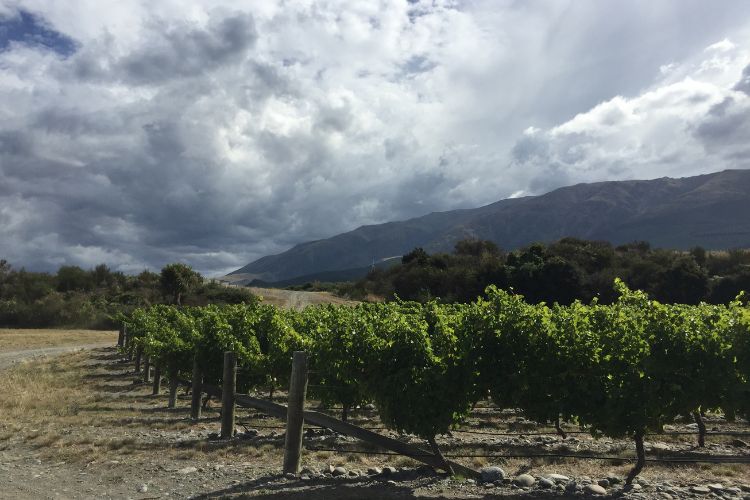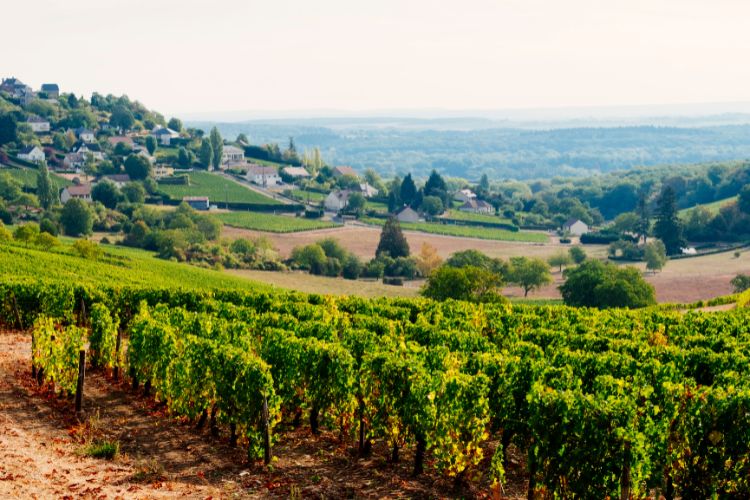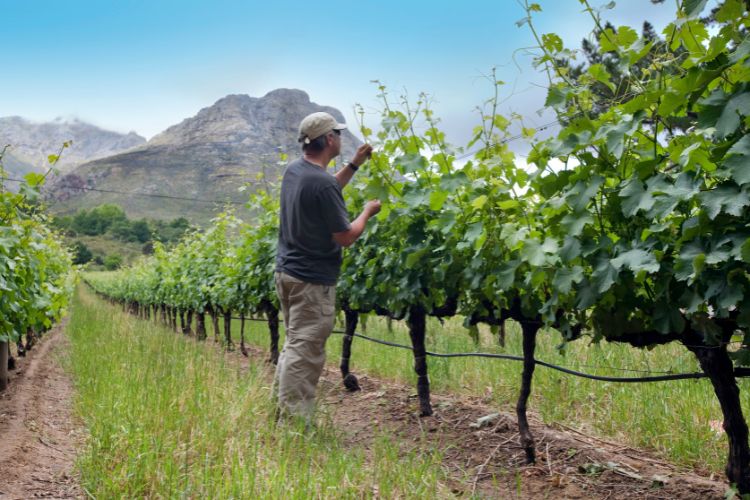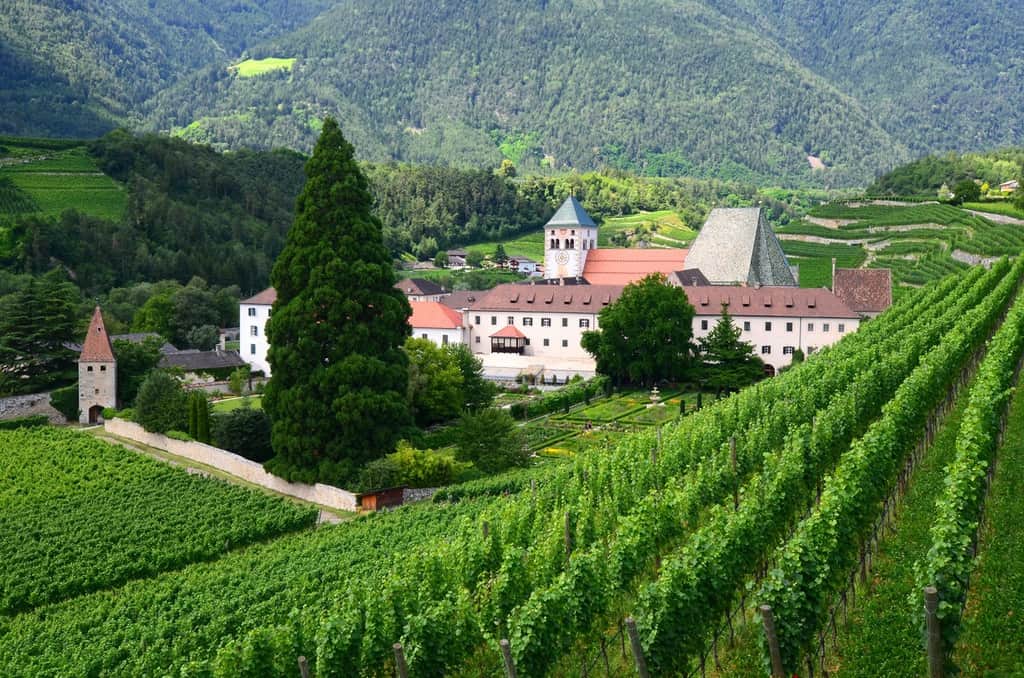In this guide, learn about the different types of Sauvignon Blanc wine produced around the world. From esteemed wine regions in Europe to new world regions crafting exceptional versions of this popular white wine grape variety.
While Sauvignon Blanc has some of the most undeniable notes across the board, it is impressive how different it can taste depending on where it comes from and the method of production that it undergoes. In early March, I joined 75 judges from around the globe in the Loire Valley, France to judge over 1,100 examples of Sauvignon Blanc from 24 countries for Concours Mondial du Sauvignon. CMS’s mission is to promote Sauvignon Blanc to the public and to encourage a conversation between wine professionals and winemakers. It was astounding how flexible the grape is and how the terroir of a particular region can really shine through both in terms of aromatics and on the palate.
Classically, the grape produces fresh and crisp wines with high acidity and green notes but from there it gains its personality depending on where it was grown and how it was made. Let’s take a look at the various flavor profiles of Sauvignon Blanc around the world.
MARLBOROUGH, NEW ZEALAND

The tiny island of New Zealand is known for its Sauvignon Blancs and their mouth-watering citric acidity. While the grape is grown all over the two islands that make up New Zealand, the region it is most recognized for is Marlborough. Marlborough has long ripening periods due to moderate temperatures, lots of sunshine, and great diurnal shifts. This allows the grapes to achieve concentration and high acidity. The glacial, stony gravel and sandy loam are free-draining soils that retain heat and reduce excess water, producing highly aromatic wines.
New Zealand Sauvignon Blanc Tasting Notes
Herbal: grassy, lemon-grass, green pepper
Floral: lime leaf
Fruit: passionfruit, gooseberry
BORDEAUX, FRANCE
In the Mediterranean/maritime region of Bordeaux, France, all white wines are a blend that includes Sauvignon Blanc. The other grapes that make up the blend are Semillon and Muscadelle, with trace amounts of Sauvignon Gris, Ugni Blanc, and Colombard. The styles are divided into two types, dry and sweet. The dry-style wines, mainly grown in Pessac Leognan, are unctuous and oily in texture, and while they are still high in acidity it is less spine-tingling and more nuanced. Many of these are considered age-worthy whites and very complex. Pessac Leognan is a forested area with cool nights perfect for phenolic ripening, and limestone-mixed soils that are imparted in the unique profile of the region’s wines. The sweet styles are made in Barsac and Sauternes obtaining deeply concentrated and intricate flavors.
Bordeaux Sauvignon Blanc Tasting Notes
Herbal: ginger
Floral: chamomile, honeysuckle
Fruit: lemon curd, lime, grapefruit
Other: limestone
RELATED: 30 Top Wineries To Visit in Bordeaux France
LOIRE VALLEY, FRANCE

Vineyards hug the Loire River for 800km (497 miles) from Nantes in the west to Sancerre in the east in the Loire Valley, France. The hotspot for Sauvignon Blanc is in the Centre-Loire (Middle Loire), which is known for its limestone-rich soils that give Sauvignon Blanc its characteristic notes. The cool climate is ideal for Sauvignon Blanc as it buds late and ripens early so it avoids the frost and harsh winds while reaching phenolic ripeness with ease. It is grown mainly in Sancerre, Pouilly-Fumé, Reuilly, Menetou-Salon, Quincy, and Touraine Blanc and rarely blended. The wines of Sancerre and Pouilly-Fumé have a fabulous flinty character from the silex soils in those appellations and are considered the highest echelon of Sauvignon Blanc.
RELATED: Best Wineries in Sancerre, Wine Tours & Tastings to Experience This Year
Loire Valley Sauvignon Blanc Tasting Notes
Herbal: aloe, basil, tarragon
Floral: honeysuckle
Fruit: white peach, Meyer lemon, honeydew melon
Other: minerality, flint
FRIULI, ITALY
One of my team’s favorite flights turned out to be stunners from Fruili in Northern Italy near the borders of Slovenia and Austria. The warm sunshine during the day and cool nights give this region’s Sauvignon Blanc a concentrated, round texture with a citric acid spine. Ponca (compressed sedimentary) soils are rich in minerals which come through in the wine. While there are still savory notes, they are less pyrazine and more herbal. They can be made in a variety of styles from oaked to steel-aged, blended or varietal. Winemaking pioneers, Gravner and Radikon have been employing extended skin contact and aging the wines in amphorae rather than barrels—many of these examples include Sauvignon Blanc within a blend to add zest.
Friuli Sauvignon Blanc Tasting Notes
Herbal: sage, tomato leaf, grassy
Floral: elderflower, rose petal
Fruit: grapefruit
Other: white pepper, saline
ALTO-ADIGE, ITALY
Just under 4 hours drive North of Friuli is Alto-Adige which cultivates 423 hectares (1,045 acres) of Sauvignon Blanc. This alpine/Mediterranean region is close to Austria and takes some winemaking leads from them. The high altitude and steep slopes in addition to the valley floors sending warm air up into the vineyards during the day allow wines to easily ripen allowing for elegant wines with restraint and texture.
Alto-Adige Sauvignon Blanc Tasting Notes
Herbal: grass
Floral: rose petal
Fruit: pineapple, grapefruit, gooseberry, lychee
STELLENBOSCH, SOUTH AFRICA

Sauvignon Blanc is the best-selling white wine in South Africa and Stellenbosch is the most well-known region for its cultivation. Free-draining granite and sandstone soils are found throughout Stellenbosch and aid in water retention. False Bay in the south introduces a breeze that cools the grapes from their hot and dry climate. Stainless steel is still the most popular method of production, but some producers do make wooded Sauvignon Blancs, as well as skin-fermented and extended lees aged.
Stellenbosch Sauvignon Blanc Tasting Notes
Herbal: lemongrass, green pepper,
Floral: honeysuckle,
Fruit: gooseberry, passionfruit, lemon and lime peel
Other: earthy, hay
STYRIA, AUSTRIA
Austria’s southern Styria (or Steiermark) region has been producing Sauvignon Blanc for centuries and is now the region’s signature variety. The range of styles is vast from young “Klassik” styles that are fruit-forward and fresh, to more complex versions in the classification system—Orstwein (village), Erste STK Lage (first growth) and Grosse STK Lage (great growth). If these wines see oak at all, it is usually large neutral vessels to keep freshness but add a slight oxidative character. The steep hills are home to diverse soils, humid days and cool nights giving way to acid-driven wines.
Austrian Sauvignon Blanc Tasting Notes
Herbal: anise, ginger
Floral: orange blossom
Fruit: candied pineapple, white peach, lemon balm
Other: smoky, saline, nutty, honey
NAPA VALLEY, CALIFORNIA
California representative on the CMS editorial team, Deborah Parker Wong, said to fellow judges, “If you taste a little sunshine it might be from California” and she was definitely right. That California sun adds a bright, honeyed richness to the grape, even when vinified dry in Napa Valley. An intoxicating bouquet supports the sumptuous body. Gravel and loam deposits scattered across the valley floor from the Napa River, as well as Conn Creek, make up the region’s terroir. Bright sunny days ripen the grapes, while a cooling fog helps the grapes to retain acidity. Styles range from oaked to stainless, mono-varietal to blended.
Napa Valley Sauvignon Blanc Tasting Notes
Herbal: chervil, spearmint, saffron
Floral: orange blossom
Fruit: bosc pear, white peach
See the results of this year’s contest here. Learn more about other grape varieties here.
Frequently Asked Questions about Types of Sauvignon Blanc
You are reading “Different Types of Sauvignon Blanc from Regions Around the World” Back To Top
white wines to try, sauvignon blanc types, top affordable wines to try: Marlborough sauvignon blanc
If you enjoyed this guide, be sure to follow us on Twitter, Instagram and join our Facebook Group to interact with other Winetravelers and ask for additional advice on wines to try and regions to visit.

Fantastic piece. I love this round up! I hadn’t had Sauvignon Blanc in a while and returned to this grape earlier this week during some virtual tastings. I didn’t realise how much I missed it! You’ve inspired me to explore more and get on to a few tracks which are less trodden for me: Friuli and Stellenbosch. Cheers!
[…] https://www.winetraveler.com/grape-varieties/sauvignon-blanc/ […]